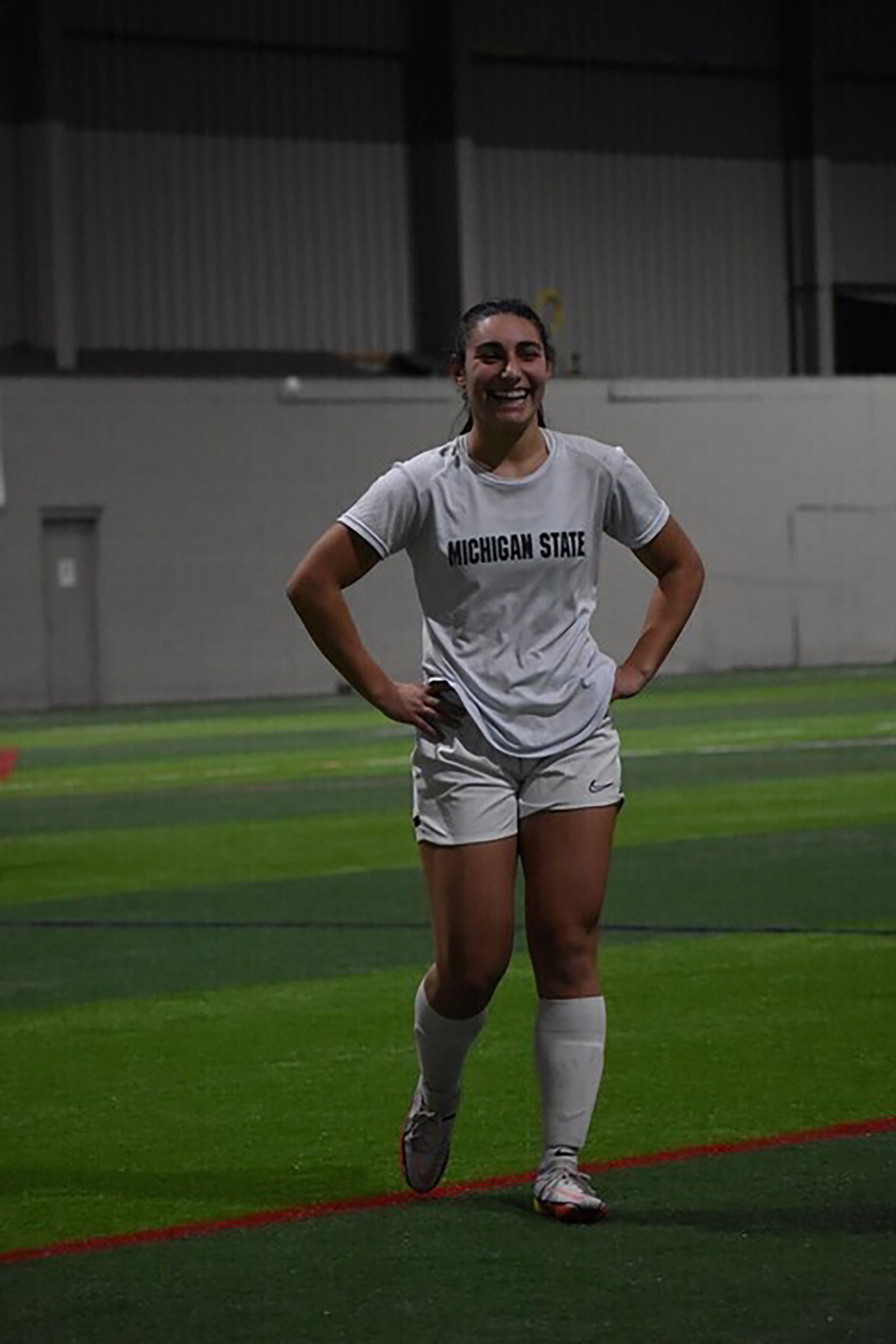Michigan State University student Jackie Matthews, 21, has lived through not one, but two mass shootings—first as a middle schooler in Newtown, Conn., when 20 children and six staff members were killed at the nearby Sandy Hook Elementary School in 2012, and this week, more than a decade later, as an MSU senior when a gunman killed three students and injured five others on the campus on Feb. 13. During both shootings, Matthews sheltered in place for hours and worried about her friends and community.
Matthews spoke to TIME about trauma, recovery, and gun violence in America. “Unfortunately, this topic is very polarized in America right now,” she says. “Whatever side you take, going to school should not be a war zone.”
This interview has been edited and condensed for clarity.

What were your first thoughts when you heard about the threat on campus at MSU?
Initially, we had gotten note that there was an active shooter in Berkey Hall and we immediately just locked our doors and made sure that all of our roommates were home and then just started checking in on everybody that we knew.
As a child in Newtown, you probably had a different perspective than you do now. How did it feel being in such a similar situation more than 10 years later?
It felt terrible, especially because I knew that another community would be hit with irreversible grief, and I think that’s something that no one should ever have to experience in their lifetime. I was immediately thinking about the victims and their families. I want to continue to say their names: Alexandria Verner, Arielle Anderson, and Brian Fraser, and especially the five victims in critical condition as well. I just hope that everybody in the Michigan State community is trying to find any sort of comfort that they can in such a difficult time right now.
In your experience, what are some of the effects that a tragedy like the one at Sandy Hook or at MSU can have on a community?
It has a lasting effect. Unfortunately, on one side, it’s comforting when a community is able to come together and work together in order to fight against something that they never want to see again. But at the same time, there is that traumatic after-effect and something as tragic as a school shooting is not a normal human experience, so I think that takes a lifetime to grieve. I don’t think anybody really ever fully heals from that.
There were others at MSU who survived mass shootings before. What is the sense of solidarity and shared trauma in that and how does that reflect in the aftermath?
Those stories of people who have experienced multiple mass traumas says a lot about the current state of our country. I think that when people hear these stories, it encourages people to take more action, and we would like to hope that that’s the case. I think when lawmakers hear directly from the constituents, it matters. That was the purpose of myself and others speaking out about being in communities who were affected by this tragic trauma—to raise awareness that this can’t happen again.
How do we move forward from it? What do we do? What steps do we need to take? Many people are saying, “Is this going to happen in my lifetime again?”
What do you think of all the student-led gun-reform advocacy groups? Should students and young people be the ones at the forefront of this movement?
These student-run advocacy groups are absolutely powerful in every way. Many of them speak out in order to be a catalyst towards advancing school safety and mental health in order to prevent gun violence. That’s the whole message here. Violence is preventable when you know the signs. I absolutely stand by the student organizations, although it makes me sad that they even have to do so.
Is there anything else that you think is important for people to know?
I would just continue to say the names of those victims, Alexandria, Arielle, and Brian. My deepest condolences and love goes out to their families and I hope that moving forward we can provide a safer and stronger way of life for future generations.
More Must-Reads from TIME
- Donald Trump Is TIME's 2024 Person of the Year
- Why We Chose Trump as Person of the Year
- Is Intermittent Fasting Good or Bad for You?
- The 100 Must-Read Books of 2024
- The 20 Best Christmas TV Episodes
- Column: If Optimism Feels Ridiculous Now, Try Hope
- The Future of Climate Action Is Trade Policy
- Merle Bombardieri Is Helping People Make the Baby Decision
Contact us at letters@time.com